










1. Register online for the fair at www.nacacattend.org to receive a barcode for easy onsite access to college representatives.
2. Be sure to complete MatchmakingTM during registration. Ask yourself the following questions to help determine what kind of school would be best for you. Do you want to attend...
• a large, medium, or small school?
• an urban, suburban, or rural school?
• a two-year, four-year, single-sex, or religiously-affiliated school?
3. Research colleges attending the fair to determine if they meet your search criteria. Find a list of participating colleges
• Baton Rouge: www.nacacattend.org/24batonrouge
• New Orleans: www.nacacattend.org/24neworleans
4. Make a list of questions to ask college representatives.
• What degree programs do you offer?
• What financial aid options are available to me?
• What student organizations do you have on campus?

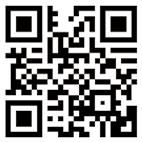
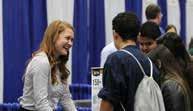
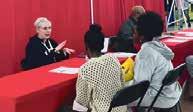

1. Pick up an event guide and bag for all of the materials you collect.
2. Reference your MatchmakingTM results and visit those that match your search criteria.
3. Ask the college representative to scan your barcode. This will allow the representative to follow up with you directly—and quickly.
4. Take notes. Write down what you find most interesting about each college.
5. Attend a workshop session or visit the college advising center to learn more about the college search process, financial aid, and other topics.


1. Review college websites, catalogs, and viewbooks to gather more information to help narrow your choices.
2. Send a thank you note/email to the college representatives you met. This simple gesture can show admission officials you’re serious about wanting to attend their college.
3. Be sure to complete the student fair survey and tag us no social media
• Hashtag: #collegefair #collegefairs #NACACfair
• Twitter and IG: @nacacfairs
The National Association for College Admission Counseling (NACAC), founded in 1937, is an organization of more than 27,000 professionals from around the world dedicated to serving students as they make choices about pursuing postsecondary education. NACAC is committed to maintaining best practices that foster ethical and social responsibility among those involved in the transition process, as outlined in the NACAC Guide to Ethical Practice in College Admission.







Connecting to programs, schools, and colleges aligned to your career goals




Scholarships, grants, and financial aid to pay for school











Ready to take the next step in your education? There’s no better place to explore your options than at a NACAC National College Fair.
Admission representatives from schools across the country are all gathered in one place. Their goal: To encourage you to learn more about their institutions, and help you sort through the qualities you’re looking for in a college.
Take advantage of their expertise and make the most of your time by following these simple steps.
Before the big day, visit nacacattend.org/ fairs and scan through the list of colleges and universities that will be represented. Make a note of the schools that interest you the most, and plan to visit their booths at the fair. Remember: applying to college is a highly personal and individual process. Your criteria of what type of college will meet your needs best may look drastically different from that of your friends and classmates, and that’s okay. There are colleges that will be close to home, and ones that are far away. Ones that are small, private schools, and ones that are large, public schools. Some will have your projected major and others won’t. Consider your goals, strengths, areas for growth, and genuinely ask yourself “why do I want to go to college?” Starting this process without a solid answer to that question is a missed opportunity.
“Planning ahead can help you stay focused,” said Cynthia Kaan, a Ferris State University (MI) admission officer. “If you have certain schools you know you are interested in, don’t limit yourself, but make learning about those schools your priority.”
You can research colleges through a variety of mediums, starting with online search engines and college websites. You can also learn more about a school through its student newspapers and alumni magazines, social
media accounts and review-based sites that rank institutions based on their perceived strengths in academics, social life, athletics, diversity, affordability, and more.
Like so many other things in life, a successful visit to a National College Fair is marked by quality, not quantity.
In other words: Rather than focusing on collecting a brochure from every college booth, make it your goal to have in-depth conversations with a few of the college reps on hand.
“I encourage students to not just stop by the table and pick up a brochure, but rather engage the representative with a few questions,” said Valencia Hamman, co-director of college counseling at La Jolla Country Day School (CA). “That means you want to come into the fair with a list of questions so you’re ready for that opportunity.”
Ahead of the fair, consider the type of environment you learn best in. Do you like smaller classrooms or larger lecture settings? Are you interested in internships and handson experiential learning opportunities? Consider asking college representatives for more information on these topics and others that may be important to you, such as on-campus housing, diversity of the student body, and support services on campus.
Yes, it’s important to plan ahead and select a few colleges you know you want to visit, but each fair draws representatives from 175 to 400 campuses throughout the US and from around the globe. You owe it to yourself to follow-up with colleges that catch your eye.
“Do your research, but also have an open mind,” Hamman said. “Sometimes students take time to talk with a representative from a school that they really hadn’t considered before and it becomes a part of their list.”
Chatting with representatives from a
variety of colleges can also help you cement your own preferences, Kaan noted.
“It’s just as important to figure out what you don’t want as it is to figure out what is really attractive to you,” she said.
It also helps to be presentable yourself. Dress appropriately and be sure to turn off your cell phone to avoid interruptions while chatting with representatives.
What’s the deal with college entrance tests? What do admission officers look for in a college essay? How can I find out if I’m eligible for financial aid?
No matter where you end up enrolling, you’ll likely encounter at least one of these questions during the college application process.
Use your visit to a National College Fair to get a head start. Check out the fair’s education sessions, covering topics ranging from college costs to student athlete eligibility and college selectivity.
Each fair also includes a counseling center, oftentimes an invaluable resource for students with specialized interests.
You may also want to speak with representatives about scheduling tours of the campuses you’re interested in and any other in-person opportunities available to you to learn more about the schools and how to apply. Some institutions offer prospective students information sessions and the chance to attend a class or shadow a current student.
Ask college reps for their contact information and be sure to follow up.
“Not always, but often, the representative that is attending the college fair is the representative that will end up reading your application,” Hamman said. “Keep in touch with them; reach out with thoughtful, intelligent questions. That demonstrates interest.”
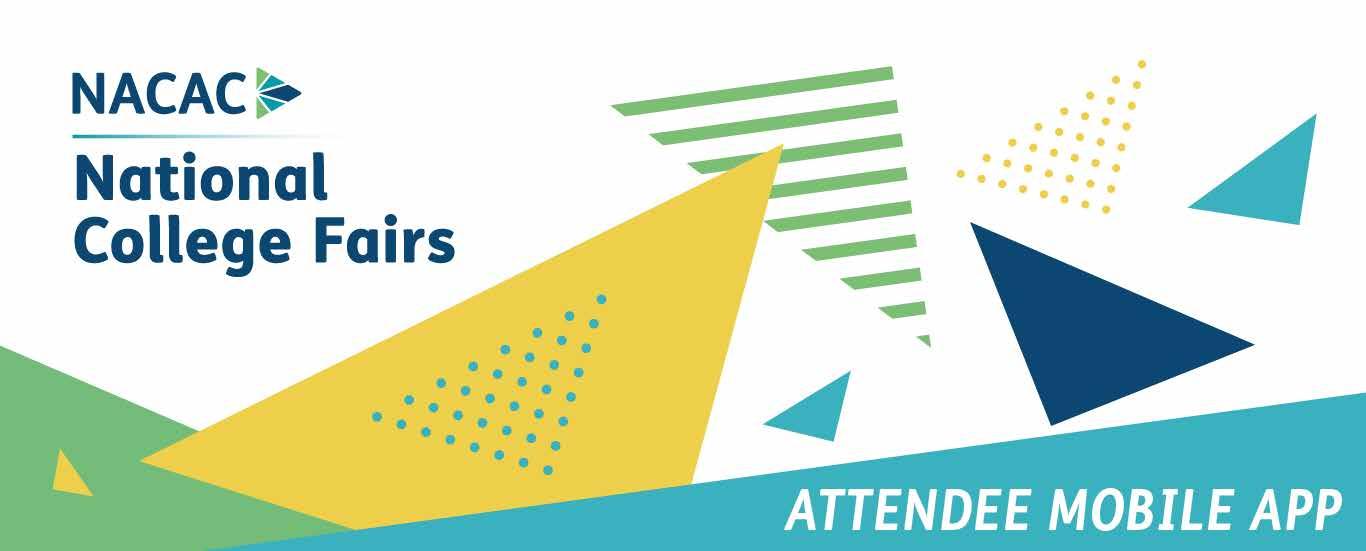
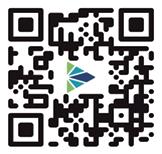
● Access College Matchmaking®
● View Fair Schedule
● Location, Bus, and Parking Information
● Fair Map and College Search Functionality
● Digital Notebook for College Booth Visits
● In-App Attendee Barcode
● Fair Announcements via Push Notifications
● Post Fair Visit Summary Email
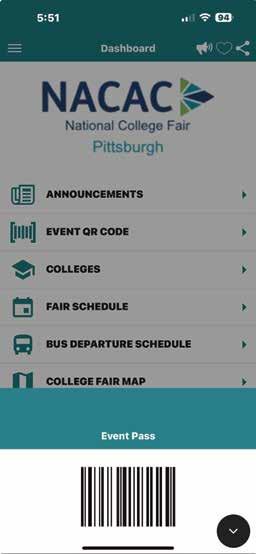


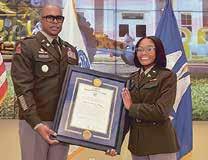


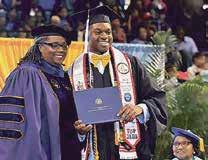
By Amanda McElfresh amcelfresh@theadvocate.com
This story is brought to you by Southern University and A&M College.
For more than 140 years, Southern University and A&M College has provided an accessible and dynamic higher education experience. As the flagship of the Southern University System — the only system of Historically Black Colleges and Universities (HBCU) in the nation — the university is an evershining beacon on the picturesque bluff of the Mississippi River in the capital city of Louisiana.
While an HBCU, Southern has a diverse population of students, faculty and staff, making everyone feel welcome to embark upon their educational pursuits. Students come from 40 states in the U.S., including Louisiana, with 63 parishes represented. Nearly 30 countries are also represented in this fall class. With more than 7,000 students, the student-instructor ratio still allows personable instruction and advisement, ensuring academic success
at every level.
A consistent trailblazer, Southern has more than 30 academic programs awarding bachelor’s, master’s, and doctoral degrees. Its arts, nursing, engineering, computer science and business programs, among others, continue to grow to become among the best in the state and nation. The university’s athletic programs continue to excel and its renowned marching band — the Human Jukebox — is inarguably one of the most elite college marching bands in the nation.
Students enjoy a holistic experience, with various student activities and

volunteer opportunities to connect to the surrounding community. There are a number of student organizations, including Greek letter fraternities and sororities. Students can also elect to choose to reside on campus, choosing from various floorplans and facilities that have all of the amenities to ensure that “home away from home” is as comfortable as possible.
Southern is also a leader in economic and workforce development on local, state, and national levels. Recent projects and collaborations include a partnership with energy company Entergy to support classroom and lab infrastructure
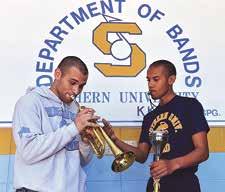
improvements to increase the number of minority engineers; partnership with international technology company DXC, which aims to expand the number of degrees awarded annually in computer science, management, and STEMrelated fields; continued relationships with Fortune 500 companies and government agencies such as NASA; and the establishment of the Valdry Center for Philanthropy, which offers programming in the philanthropic and nonprofit fields. Southern University is accredited by the Commission on Colleges of the Southern Association of Colleges and Schools. The university was recently listed among the top 20 HBCUs in the nation by U.S. News and World Report.



By Amanda McElfresh amcelfresh@theadvocate.com
This article is brought to you by Louisiana Tech University.
Louisiana Tech University is celebrating the largest freshman class in its 130-year history. That class is part of a student body of 12,039 the first time the university has eclipsed 12,000 student enrollments in six years. Students from all over Louisiana and beyond are flocking to Ruston, where they find a comprehensive research university located in an idyllic college town
“A Louisiana Tech degree has long been associated with life and career success We attract students who are prepared for the academic rigor of a university focused on scholarship, teaching, and engaging experiential learning,” President Jim Henderson said. “Students enjoy the vibrant campus environment and are drawn to our faculty re nowned for de ve loping in dividual s to their fullest potential and preparing them to thrive in a future of boundless opportunity.” With its beautiful traditional ca mpus in a charming place, Louisiana Tech is the premiere university for students seeking a tailored educational experience. Boasting more than 135 degree programs, Louisiana Tech has something that meets nearly everyone’s interests and goals The University is re gularly re cognized fo r its engi neer ing, bu siness, cyber, computer sci en ce, and forestry programs. Also notable are elementary education, kinesiology, biology, aviation, and nursing programs.
Louisiana Te ch is re no wned for it s academic innovation The University was first in the nation to offer a cyber engineering degree program and one of the first to offer biomedical engineering. And on Enterprise Campus, Tech Bulldogs can gain valuable professional experience with any of the 18 tenants at Tech Pointe I and Tech Pointe II.
Louisiana Tech is listed among nation’s best in 2025 U.S. News & World Report rankings

Preparing pilots f or th eir sky- soari ng careers, Louisiana Tech’s aviation program is ranked highest in the state and is nationally recognized. Students in Tech’s aviation program gain valuable hands-on experience and have 100 percent post-graduation career placement.
Recently ranked the No. 1 university in th e st at e by Ni ch e.co m, Lo uis ia na Te ch ensures its students receive an academic ally ri go ro us e d u ca tion combined with affordability Louisiana Tech students have the lowest average debt in the state. In fact, ninety-three percent of all students receive scholarships and financial aid.
In addition to Louisian a Te ch’s va lu e, s tudents g ra duating from the Un iversity have the fastest time to degree completion in the state, meaning less tuition or even a head start on a graduate degree. In fact, the university has 20 master ’s degree programs with concurrent enrollment, which allow undergraduate students the opportunity to enroll in advanced classes before graduating
With more than 16 0 or ganizations to match students’ interests, Tech students enjoy a vibrant student life. Opportunities to get involved range from traditional sororities and fraternities to intramural sports to degree-specific interests
The Louisiana Tech Honors College is an opportunity for students with exceptional ability and motivation to further enhance their college experience through its 21 credit-hour curriculum, undergraduate research, national competitive awards, Phi Kappa Phi Honor Society, and Study Abroad.
Exciting intercollegiate athletics competition enhances the spirit on campus. With 16 NCAA Di vision 1 sports and state-ofthe-art fa cilities—J.C Love Fi eld at Pa t Patterson Park, The Origin Bank Softball & Soccer Complex, Dr Billy Bundrick Field, and Robert Mack Caruthers Field all opened in 2021—students enjoy cheering on the Bulldogs and Lady Techsters throughout the year
Student housing options on campus are
plentiful and range from traditional dorms to suites to apartments. Living on campus is convenient and provides an opportunity to be immersed in the Tech family. Students living on campus have access to any amenity they need and benefit from proximity to vibrant downtown Ruston, which offers events, boutiques, and restaurants.
Students interested in Louisiana Tech should plan a visit. The admissions office offers weekly visits and several weekend events to accommodate everyone’s schedule. Louisiana Tech has been the right choice for more than 118,0 00 alumni. It has the offerings of a large university but provides a more tailored educational experience in a caring atmosphere.
Go Dogs!
Fo r more inf ormation , visit ww w. latech.edu or call the Office of Admissions at 318-257-3036.
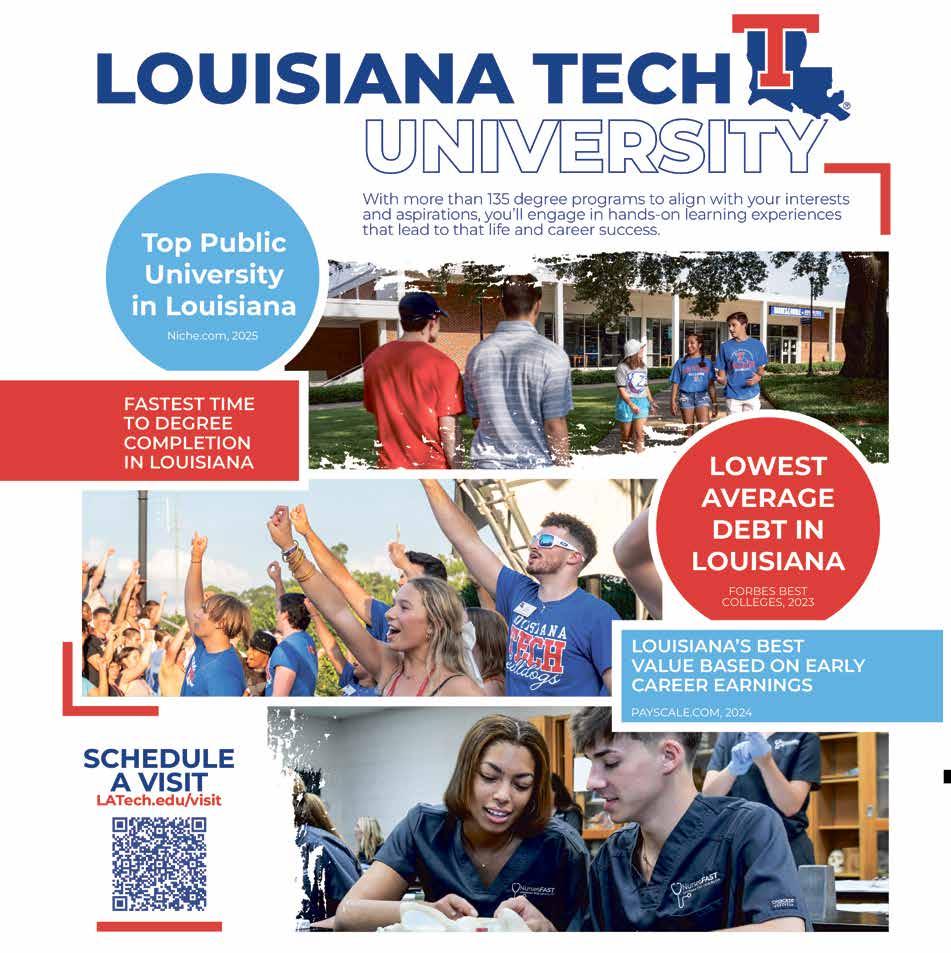



Your future after high school holds tremendous promise –you’ll make new friends, follow your interests and, hopefully, find a satisfying career.
However, more than a third of students who enter college fail to graduate with a bachelor’s degree within six years, according to the National Center for Education Statistics.

“There are two reasons why kids flunk out,” said Amy Thompson, a counselor at York Community High School (IL). “They are either academically unprepared or they are emotionally unprepared.”
Increase your chances for success by making the most out of your high school years.
Taking rigorous classes in high school helps you get into college, and the knowledge and skills you acquire also help prepare you to be successful in pursuit of your degree. Seek out honors, Advanced Placement (AP) or International Baccalaureate (IB) courses in subjects that interest you. Look for courses that require lots of writing and critical thinking—skills you’ll use in almost every college class. Don’t panic if the material seems difficult at first. Developing good study habits and time-management skills in high school can help you persevere in college.
Some rigorous courses actually allow you to jumpstart your postsecondary education. Students who do well on AP tests, for example, can earn college credit. Some high schools also partner with local colleges to offer dual-credit courses, which can help acquaint you with how college courses are structured and scheduled. Some meet every day, while others meet a couple times a week. Some meet in the evenings or online. In general, college courses are longer and more intensive, and the volume of work is likely greater than what you’re accustomed to in high school.
Higher education entails what the title implies – higher standards, more difficult subject matter, and greater expectations of you as a student.
From athletics to theater to volunteering—there’s a whole world of
extracurricular activities open to high school students.
“The one piece of advice I give students is don’t just join something to pad your resume,” Thompson said. “Pick something you’re genuinely interested in.”
By senior year, “be in a position that shows not only your devotion to the group, but also some level of initiative or leadership,” she said. “Admission officers can see through the applicant who joins a million different clubs in their junior or senior year.”
Universities are looking for students who will make the most of the opportunities available to them. A high school record with extracurricular activities helps show admission officers that you’ll be a valuable part of their campus community.
Extracurricular activities, especially those with leadership positions, can help you develop money skills, as well. It’s wise to learn how to handle a debit or credit card, and to practice budgeting. As a college student, you’ll need to set money aside for regular costs like books, supplies, and living expenses.
Your senior year of high school will be hectic.
It can be tempting to sluff off in the classroom, but stay focused.
“You need to maintain your academic performance and do at least as well—if not better—because you don’t want to have your admission offer rescinded,” Thompson said.
When planning your schedule, make sure that you’re on-track to meet college entrance requirements, including at least two years of a foreign language and four years of math, science, and English courses.
“Colleges want to see that you know how to work hard, and that you have taken advantage of the courses and activities your high school has to offer,” Thompson said. “A strong finish in your senior year helps make you a more attractive candidate.”
It’s an exciting time in your life. By taking charge of the changes that lie ahead, you can eliminate or minimize pressures and go forward with confidence.

Considering going back to college?
You’re in good company. Nontraditional students now make up the majority of US undergraduates, and one-in-four college students are age 30 or older.
But although colleges are serving a greater number of adults,
1 2 3 4


finding the right program—a place where you can balance your education with employment and family responsibilities—is key to your success.
Here are four questions every nontraditional student should ask when researching schools.
Ask some tough questions: What’s the graduation rate of nontraditional students at your institution? Are adult students eligible for merit aid? How much debt do students typically accrue? What’s the average time to graduation?
Learning the answers can help you decide which college is right for you. It can also help you estimate how much time— and money—you’ll need to complete a degree.
Responsibilities at home and at work can change over your course of time that you’re enrolled in college. Choosing a school that provides a variety of course options—from in-person, to online, to hybrid—increases your odds of staying on track.
“A lot of adults have full-time work schedules or child care responsibilities,” said Amber Harnack, student success center director of Ivy Tech Community College (IN). “They often need more flexibility when it comes to scheduling classes.”
Also ask about student support services, such as tutoring, recommends Michelle Christopherson, director of the Center for Adult Learning on the University of Minnesota—Crookston campus.
“You want to make sure that you are going to be supported, and you want to make sure that those services aren’t going to end up costing you extra,” she said.
The majority of nontraditional students have already accumulated some college credits by the time they reenter higher education.
Before you enroll in any program, learn whether your credits will transfer and how many courses you’ll need to complete a degree.
“You want to make sure that from the beginning you have a clear understanding on how much it will cost and what your degree pathway will look like,” Christopherson said.
Begin your college search with the end in mind.
What’s spurring your decision to return to school? Are you looking for advancement options in your current field, or do you want a career change?
Ask college officials about the types of jobs landed by recent program graduates. Inquire about the services offered at the campus’ career center.
“Make sure that your goals match up with what the college is able to provide,” Harnack said. “You want to be certain that the degree program you ultimately choose is a good fit.”




Bishop’s University (Sherbrooke, QC CA) .............. 200
Durham University (Durham, UK) ........................... 606
McGill University (Montreal, QC CA) 500
Newcastle University (Newcastle Upon Tyne, UK) ....................................... 104
Richmond American University London (London, UK) 403
Temple University - Japan Campus (Tokyo, JP) .. 304
The University of Manchester (Manchester, UK) 203
ALABAMA
Marion Military Institute............................................ 600
The University of Alabama 103
The University of Alabama in Huntsville ....................................................................506
University of Alabama at Birmingham ..................... 211 University of South Alabama 507
ARKANSAS
University of Arkansas 108
ARIZONA
University of Advancing Technology ....................... 300
CALIFORNIA
Los Angeles College of Music ...................................... 514
Santa Clara University ................................................. 504
CONNECTICUT
University of Connecticut ............................................ 114
FLORIDA
Embry-Riddle Aeronautical University ................... 101 Full Sail University ....................................................... 208
Nova Southeastern University 501
The University of Tampa ..............................................308 University of Florida ..................................................... 105
GEORGIA
Mercer University ......................................................... 502
Savannah College of Art and Design .......................... 201 Spelman College 210
HAWAII
Hawaii Pacific University 209
Academy of Interactive Entertainment - Lafayette Campus........................................................ 205
Baton Rouge Community College ..............................207
Centenary College of Louisiana 115
Delgado Community College 508
Franciscan Missionaries of Our Lady University ................................................. 602
Louisiana State University Eunice 411
Louisiana Tech University ........................................... 511
Loyola University New Orleans ..................................503
LSU Army ROTC ................................................. 315 & 317
McNeese State University 516
Northwestern State University ................................. 604
Southeastern Louisiana University ............... 215 & 217
Tulane University 306
University of Louisiana at Lafayette 515 & 517
Massachusetts Institute of Technology 414 Massachusetts Maritime Academy .......................... 202
Montserrat College of Art ............................................. 314
Olin College of Engineering 310
United States Naval Academy .................................... 405
MINNESOTA University of Minnesota-Twin Cities ....................... 316
MISSISSIPPI
Belhaven University ...................................................... 107
Mississippi College ........................................................ 401 Mississippi State University 302 The University of Southern Mississippi 110
University of Mississippi ................................. 415 & 417
William Carey University............................................. 117
NORTH CAROLINA
High Point University....................................................505 Salem College 509
NEW


The University of Tulsa
PENNSYLVANIA
Penn State University....................................................
TENNESEE
University of Tennessee-Knoxville ...........................
University ....................................................
TEXAS
Houston Christian University.....................................
Texas A&M University – College of Performance, Visualization and Fine Arts
Texas A&M University-College Station ...................
BATON ROUGE NATIONAL COLLEGE FAIR COMMITTEE
Anthony Ranatza, Southeastern Louisiana University; Chair
Jennifer Thibodeaux, Catholic High School; Co-Chair
Sean Borders, Baton Rouge Magnet High School
Sherry Brouillette, Catholic High School
Toyia Comminey, Dutchtown High School
Kristy Gremillion, LSU Lab School




Bishop’s University (Sherbrooke, QC, CA) ............... 101
Durham University (Durham, UK) 217
McGill University (Montreal, QC, CA) 408
Newcastle University (Newcastle Upon Tyne, UK) ........................................ 404
Richmond American University London (London, UK) ................................................................... 107
Temple University - Japan Campus (Tokyo, JP).... 303
The American College of Greece (Athens, GR) ....... 506
The University of Manchester (Manchester, UK) ........................................................... 601
University of East London (London, UK) ................ 315
Marion Military Institute 517
The University of Alabama .......................................... 410
The University of Alabama in Huntsville.................. 114
University of Alabama at Birmingham 600
University of South Alabama 215
Universal Technical Institute ..................................... 516
University of Advancing Technology 402
ARKANSAS
University of Arkansas .................................................. 605
CALIFORNIA
Los Angeles College of Music .......................................515
Loyola Marymount University 603
Santa Clara University .................................................. 608
Scripps College ................................................................ 514
University of San Diego 302
CONNECTICUT
United States Coast Guard Academy ........................ 414
University of Connecticut ............................................ 507
FLORIDA
Embry-Riddle Aeronautical University 205
Florida Memorial University ....................................... 115
Full Sail University ........................................................ 401
Nova Southeastern University 309
Schiller International University 104
The University of Tampa .............................................. 602
University of Florida ..................................................... 405
GEORGIA
Georgia State University 308
Mercer University .......................................................... 508
Morehouse College ......................................................... 305
Savannah College of Art and Design 200
Spelman College.............................................................. 501
Hawaii Pacific University ............................................. 204
Academy of Interactive Entertainment
- Lafayette Campus......................................................... 300
Baton Rouge Community College 400
Centenary College of Louisiana 407
Delgado Community College ........................................ 311
Franciscan Missionaries of Our Lady University ...617
Louisiana Center for College Access (LCCA) 616
Louisiana State University 108
Louisiana Tech University ........................................... 614
Loyola University New Orleans .................................. 314
Loyola University New Orleans
College of Music & Media ............................................. 316
Loyola University New Orleans
College of Nursing & Health 318
LSU Health New Orleans, School of Allied Health Professions ........................... 110
McNeese State University ........................................... 415
Northwestern State University 317
Nunez Community College .......................................... 209
Southeastern Louisiana University ............... 100 & 102
Tulane University ........................................................... 505
University of Louisiana at Lafayette 214 & 216
MARYLAND
United States Naval Academy 106 University of Maryland Eastern Shore 511
Massachusetts Institute of Technology 207
Massachusetts Maritime Academy ........................... 201
Olin College of Engineering ......................................... 203
MINNESOTA
University of Minnesota-Twin Cities ....................... 105
MISSISSIPPI
Belhaven University 604
Mississippi College ........................................................ 206
Mississippi State University ....................................... 202
The University of Southern Mississippi 211 The W ................................................................................. 509
University of Mississippi ..................................609 & 611
William Carey University 307
MISSOURI
Saint Louis University ................................................... 111


NEW JERSEY Stevens Institute of Technology .................................
NEW YORK
AMDA College
Christian University
A&M University - College of Performance, Visualization and Fine Arts .........................................
Texas A&M University-College Station
Texas State University ..................................................
The University of Texas at Austin ..............................
Kerri Caruso, Co-Chair, Mount Carmel Academy
Anthony Ranatza, Co-Chair, Southeastern Louisiana University
Andrea Rye, St. Mary’s Dominican High School
Kristin Guidry, Tulane University
Michelle Keelen, St. Augustine High School



Requirements and philosophies around standardized testing – most commonly the SAT and ACT – have dramatically shifted in the last two decades, accelerated by the COVID-19 pandemic. Now, most higher education institutions have test-optional policies or have wholly eliminated standardized-test scores from consideration in the admission review process.
Colleges and universities may now implement these policies:
• Test-optional: Under this policy, applicants decide if they want to submit a standardized test score as part of their application file. Optional truly means optional, and the absence of a standardized test score will not negatively impact an applicant. Instead, the applicant will be reviewed entirely on their high school transcript and rigor of their curriculum. Students should check individual admission criteria, as policies may differ under certain circumstances: applying for scholarships, students who have been home-schooled, students seeking admission into accelerated BS/MD or BS/DDS programs, international applicants, and others.
What once was a mainstay of college admission is now taking new form.

ly in the admission process; one is not preferred over another. In these cases, test scores remain just one of numerous factors considered in the admission decision.
Students who intend on taking the SAT or ACT have options available to them. This includes superscore, or the practice of combining a student’s highest-scoring sections from multiple test dates to create one superscore. Students may also choose which overall score to submit, instead of their entire testing record, if they take the SAT or ACT more than once. To help cover the costs of taking these tests, students should consult their high school counseling offices to find if they are eligible for testing-fee waivers.
Additionally, students who do take the SAT or ACT and ultimately apply to a test-optional institution do not have to submit their score. The general guidance is to submit scores that fall toward the upper end or exceed a college’s published middle 50% range, and to refrain from submitting scores that fall on the low end or below the institution’s average range.
• Test-flexible: Some institutions that either require testing or are test-optional will allow applicants to submit test scores other than the SAT or ACT for consideration. Examples of this include Advanced Placement (AP) Exam scores, International Baccalaureate (IB) Higher Level Exam results, A-Level results, and more.
• Test-free: Institutions with this policy do not accept or factor standardized test results into their admission process at all, believing there is ample information to make an admission decision in the remainder of the application.
• Testing required: Under this policy, applicants are required to submit results from the SAT or ACT. Both tests are weighed equal-
Typically, students do not take the SAT or ACT until the spring of their junior year, with most testing done in senior year. Prior, students may have exposure to college admission testing through the Preliminary SAT (PSAT) or Preliminary ACT (PreACT) in their sophomore year as a practice round. For those where that is not an option, practice tests are available online and as hard-copy books for purchase. Students may also wish to consult tutors, but should ensure their reputability before making that sometimes-costly investment.
Ultimately, students should remember that in this new standardized-testing climate, their high school record and rigor of coursework is more important than standardized test scores.
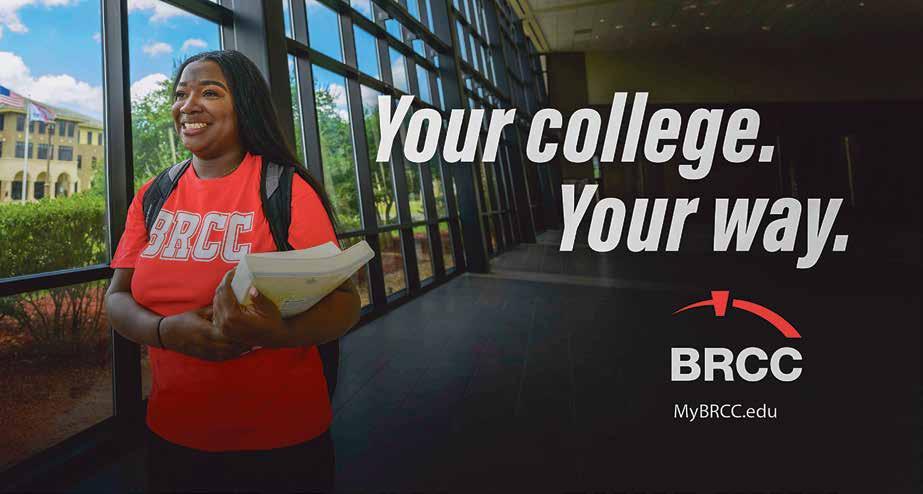
By Amanda McElfresh amcelfresh@theadvocate.com
This article is brought to you by Baton Rouge Community College.
Although college enrollment nationwide has declined since the pandemic, the numbers have grown at Baton Rouge Community College. That rise is attributed to BRCC’s commitment to delivering college education in a way that meets students’ needs, whether they are seeking a two-year degree, short-term workforce training, or additional skills and certifications. At BRCC, it’s about delivering your college, your way.
“Our strategy is inclusive and responsive to the diverse needs of our students,” said BRCC Director of Enrollment Management Dianna Gilbert. “We assist and accommodate students who come in at all different educational levels and with different backgrounds and experiences.”
That support includes tutoring services and career counseling, as well as resources such as a food pantry and a closet for students who need professional clothing.
In addition, BRCC has worked to make its programs affordable and provide financial aid such as state funds, federal grants, thirdparty scholarships and more.
“In addition to creating programs that are affordable, we also design them to be accessible,” said Gilbert, who noted that the average age of a BRCC student is 27. “We have classes online and in person. We have morning and evening classes. We try to make sure students can obtain this education regardless of their schedule or financial situation.”
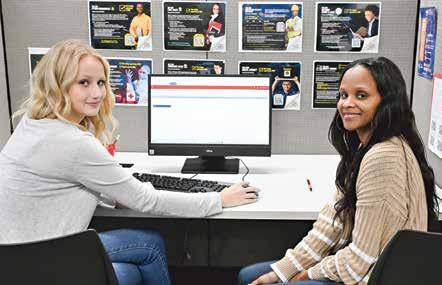
Gilbert said some BRCC students enroll with a specific career goal in mind. Others haven’t decided on a professional path, but understand the value of a degree. No matter a student’s situation, the BRCC team guides and supports them.
“We have college navigators who provide a lot of holistic support,” Gilbert said. “Their job is to point students in the direction that best suits them based on their circumstances and aspirations. They listen to each individual to help create a plan that supports achieving their goals.”
BRCC offers degrees and diplomas in fields such as business, information technology, health care, teaching, construction, aviation and vehicle services, cosmetology, welding, web design and more. Visit www.mybrcc.edu for details.




The cost to attend college continues to rise in the United States, with many institutions surpassing $80,000 for one academic year. However, numerous resources from scholarships to federal aid exist for students in their pursuit of higher education.
The bottom line – the cost of college does not have to be a deterrent for students who desire to continue their education. In fact, the most expensive schools often have the most aid to give. Students and their support systems should consider cost as a factor upfront in their search for the best-fit institution, including some that are within reach without substantial aid. While most colleges want to and do provide financial aid to all accepted students, there is no guarantee. Many resources exist, though, for dream schools to be within reach.
To start, after Oct. 1 of high school senior year, all students should plan to file the Free Application for Federal Student Aid (FAFSA), the only financial aid application required by most colleges. Overseen by the U.S. Department of Education, it determines if students are eligible for federal need-based aid.
Need-based financial aid is for families who have demonstrated a level of need required to meet the total cost of attendance. Need-based aid is not dependent on a student’s academics, testing, or extracurricular activities, and can come in the form of grants or loans, including:
• Federal Pell Grants: The largest source of free money for college from the federal government, these are awarded to undergraduate students who demonstrate a high level of financial need. The award varies annually depending on federal funding, with the maximum award in 2022-23 being $6,895.
• Federal Work-Study (FWS): This program provides part-time jobs for students with financial need. In a federal workstudy position, students earn, at minimum, the federal minimum wage and usually work between 10-15 hours per week.
• Federal Direct Subsidized Loan: The U.S. government covers the cost of the loan’s interest while you are enrolled in an undergraduate program more than half-time and for the first six months after completing the degree.
Students also can qualify for institutional aid programs, which are non-federal funds administered by the college. Institutional grants often are based on financial need, while scholarships often are awarded based on athletics, academics, music or other particular skills, known as merit scholarships. Institutions also often offer loans with low-interest rates and favorable repayment terms, as well as student employment opportunities based on financial need, a student’s job qualifications, or a combination of the two.
Lastly, private scholarships and loans can help students finance their college education. Private scholarships often require a separate application based on academic standing or financial need, but also may be available to students based on their field of study, religious affiliation, racial or ethnic background, leadership skills, place of residents, skills and talents, and other criteria. High schools, churches, local businesses, and civic service organizations frequently have scholarship programs that students are encouraged to consider.
The cost of college is a significant factor that should be considered when deciding where to attend. Before borrowing, students and families should consider this general rule of thumb: Do not borrow more than your expected starting salary after graduation.
Do you want to take your passions and turn them into action? To make the most of your gifts and talents? To shape the world around you through your skills and interests?
Now, you can.


FranU guides
true callings with careful discernment and professional experiences
By Amanda McElfresh
amcelfresh@theadvocate.com
This article is brought to you by FranU.
Most students who enroll at FranU do so with a particular career path in mind. However, those ideas often change as they learn about job opportunities that may not have occurred to them. The FranU faculty and staff is ready to help students become more focused through a process called vocational discernment.
“We guide them to think prayerfully and deeply about what they are being called to do in this world, as well as how to match their talents and interests to where there is a need,” said FranU President Dr. Tina Holland. “We encourage them to keep their options open and to understand
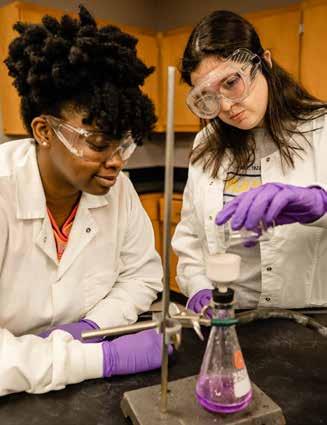

that this is just the beginning of their career in healthcare. We teach students to constantly rely on the process of discernment to think about how they are being called to fill a need in the world.”
Much of this guidance takes place in an academic seminar during a FranU student’s first year, as well as an advising office with professional academic advisors who work individually with students. In addition, FranU intentionally hires faculty members who are prepared to go beyond teaching content.
“Many of our faculty are clinicians who are ready to share their skills and practice with students, but it’s also about preparing students to be integrated thinkers and faith-filled citizens,” Dr. Holland said. “We expect our faculty to get to know students so they can strike the right combination of challenge and support for each individual.”
FranU faculty and staff also play a key role in helping students become immersed in the professional world as soon as possible through part-time jobs or internships.
“We want students to experience a work environment in an area that they are discerning a future in,” she said. “We’re fortunate to have a lot of hiring partners who know the FranU reputation and are eager to offer our students those opportunities.”
The FranU mission is to educate and form Franciscan servant leaders of all faiths. The university offers degrees in numerous healthcare fields, as well as business, theology and more. Visit franu. edu for more information.



When we asked Brennan Barnard, director of college counseling at the Derryfield School (NH), what students are most worried about, his response was: “What aren’t students worried about?”
It’s true the college admission process warrants a certain amount of anxiety. As they continue with their regular coursework, students schedule visits to colleges, take standardized tests, monitor application deadlines, write essays, and more. But college counselors also worry about other factors outside of the traditional steps to college admission—some they have no control over—that adversely affect the student psyche.

One of the most common pitfalls, counselors say, is the search for the “best” college instead of the best fit. College rankings, media coverage, and social media all play roles in shaping student perception, but students can easily drown in college admission anxiety if they let others identify their choices.
“I have some students who won’t even look at smaller, regional colleges near us because those schools don’t have a reputation that the student, or parent, is aware of,” says Michael Dunn, director of college counseling at the Aim Academy (PA).
Of course, these influences have always existed, but there are other societal trends that make today’s current climate unique. Students, counselors say, are far more focused on results. In other words, they want to know that the college they attend will guarantee them a job after they graduate. Perhaps this is due in part to the financial crisis of the last decade, or maybe the rising cost of tuition has students worried about future debt. Either way, the traditional view of higher education is changing.
While it is important to consider financial obligations and future job prospects into the college search, it can lead students to erroneously believe only a select few schools will provide those opportunities. Dunn says his students often think only “good” colleges result in “good” jobs. But they fail to realize that their definition of good may be flawed. To correct their misconceptions, it’s helpful to flip that model. Instead of starting with the perceived results, counselors recommend walking back the process to the beginning. In other words, figure out how you got to your list of colleges in the first place.
To remain balanced throughout the admission process, students should reflect on what they want and need from a college to determine what’s important to them. This can be a guiding compass throughout the process. If students remain self-aware, they can minimize pressure to gravitate to what is familiar, rather than what is truly best for them. Parents and guardians can support their students by keeping their wants and needs at the center of the process and allow them to use this time for exploration. Resist the urge to micromanage as a way to ease your own stress or anxiety about the process. To create open communication throughout, consider carving out a standing time each week to check in on their progress.
Dunn also suggests taking a break in the middle of the busy admission season. He recommends several strategies for reducing anxiety and approaching the process with a clear mind:
Because it becomes more difficult to address stress when we’re in full-blown panic mode, college counselors recommend using a tool called “previewing.” This just means setting up a stress-relief plan ahead of time, so that it becomes easier to implement during a crisis.
Successful stress relief methods vary from person to person, but there are some common methods that typically work for anyone. Going outside, whether to exercise or just sit and enjoy a local park, is one healthy remedy.
Finishing essays and applications well before the deadline is critical, especially before senior year kicks off in earnest. Some high schools offer summer programs to help students get started early.
Counselors are often an under-utilized resource, and students should seek them out whenever necessary. However, it’s especially important to check in at the various application process benchmarks (test results, application deadlines, decisions). Students should remember, they don’t have to go through this process alone.

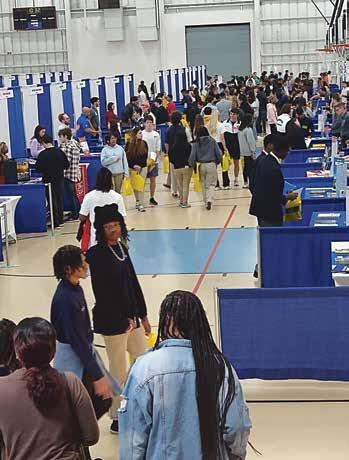



THE BENEFITS OF ONLINE STUDENT REGISTRATION
• STUDENTS REGISTER FOR THE FAIR ONE TIME.
• IT ELIMINATES THE NEED FOR COLLEGE CONTACT CARDS.
• STUDENTS ARE EASILY ABLE TO ELABORATE ON SPECIAL INTERESTS, EXTRACURRICULAR ACTIVITIES, AND ACCOMPLISHMENTS.














Southeastern is committed to helping you earn your degree, your best career—your best future. Through our high-value, in-demand academic programs you will learn from some of the best professors in their fields who put you first. Southeastern is ready to help you succeed.
As the university enters its 100th year, there has never been a better time to experience all that Southeastern has to offer. In addition to a year-long celebration full of special events and activities, our centurylong commitment to helping students reach their dream destination remains a constant in all that we do.
Our accomplished faculty will connect you with internships, study abroad programs, research projects and community outreach to make you more competitive. And after graduation, you can be confident knowing you have a degree with staying power.
The proof is in the results. Our students and alumni are leaders in improving Louisiana’s health and education, protecting our environment and workers, bringing arts and culture to our area, and strengthening business and technology. In addition to being top-ranked for social mobility, academic programs, return on investment, and much more, Southeastern has also been ranked as a top university by U.S. News & World Report.
Discover your best future at Southeastern, a place where you come first, and be part of a century-long legacy of success.

Keep your edge in a changing world with a degree from Southeastern.
Make your college experience more exciting, meaningful and valuable with opportunities based on you.
Our accomplished professors put you first—in the classroom and into your future career.
Live and lead on campus—and beyond—with student organizations for every interest, events all year long, Div. I athletics, nationally ranked campus food and new residence halls.
Our high-value degree programs, distinctive scholarships and textbook rental program make Southeastern the smart financial choice.
get there
Political science major Caroline Watson once hesitated to major in political science, settling on communication sciences and disorders as her major at first. But now she’s at the epicenter of politics, advocating for Louisianans as an intern for U.S. Senator Bill Cassidy.
From impersonating George Washington in a mock Constitutional Convention to chairing the SGA appropriations committee, Caroline’s Southeastern experiences fuel her desire to pursue law school and become a criminal prosecutor.
Caroline’s action plan
Join a pre-law student association. Represent 500 political science students as an SGA senator.
Intern for a U.S. senator.
Mentor underclassmen as an Honors ambassador. Volunteer at the St. Vincent de Paul soup kitchen. Assist with hurricane relief efforts in Louisiana and Texas.
Take the LSAT.

